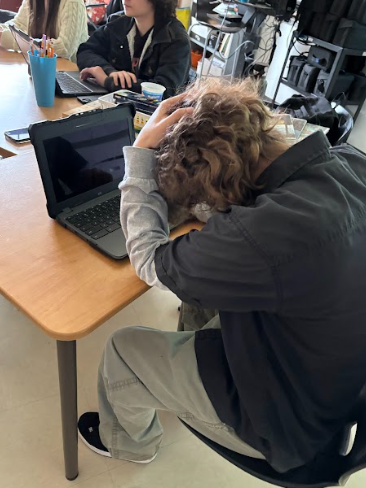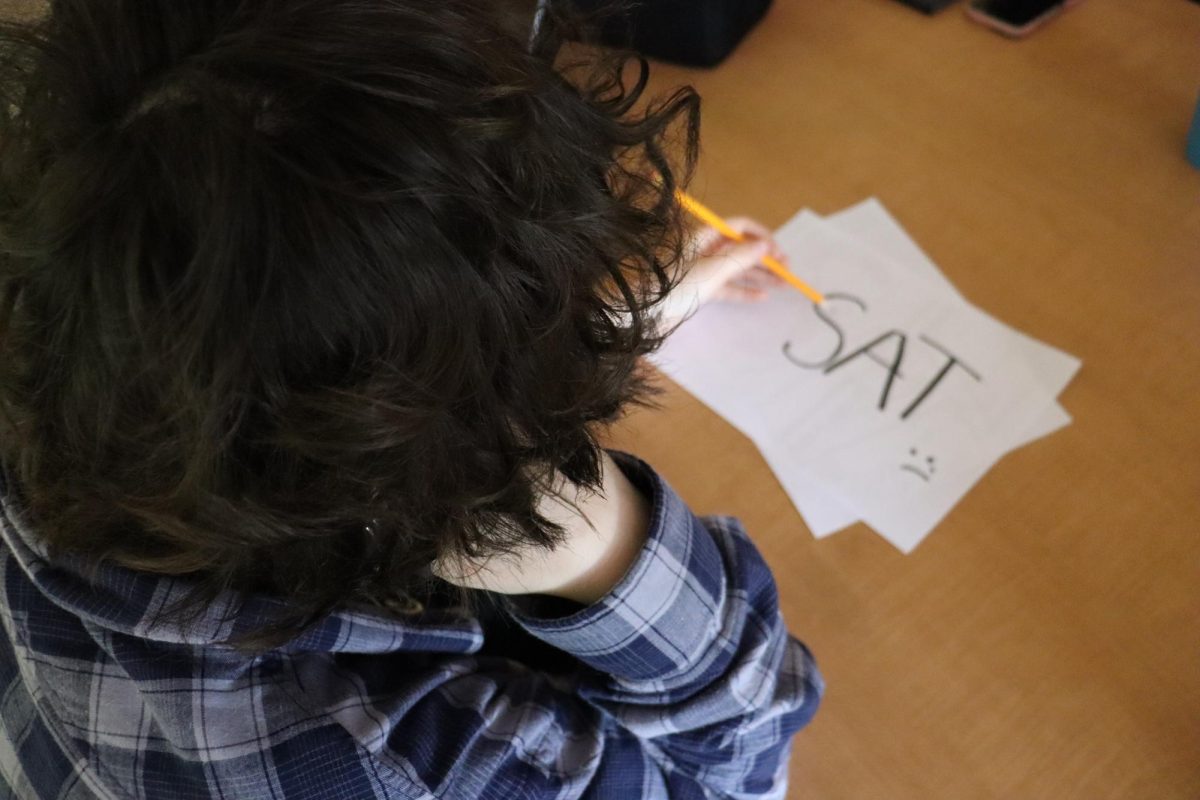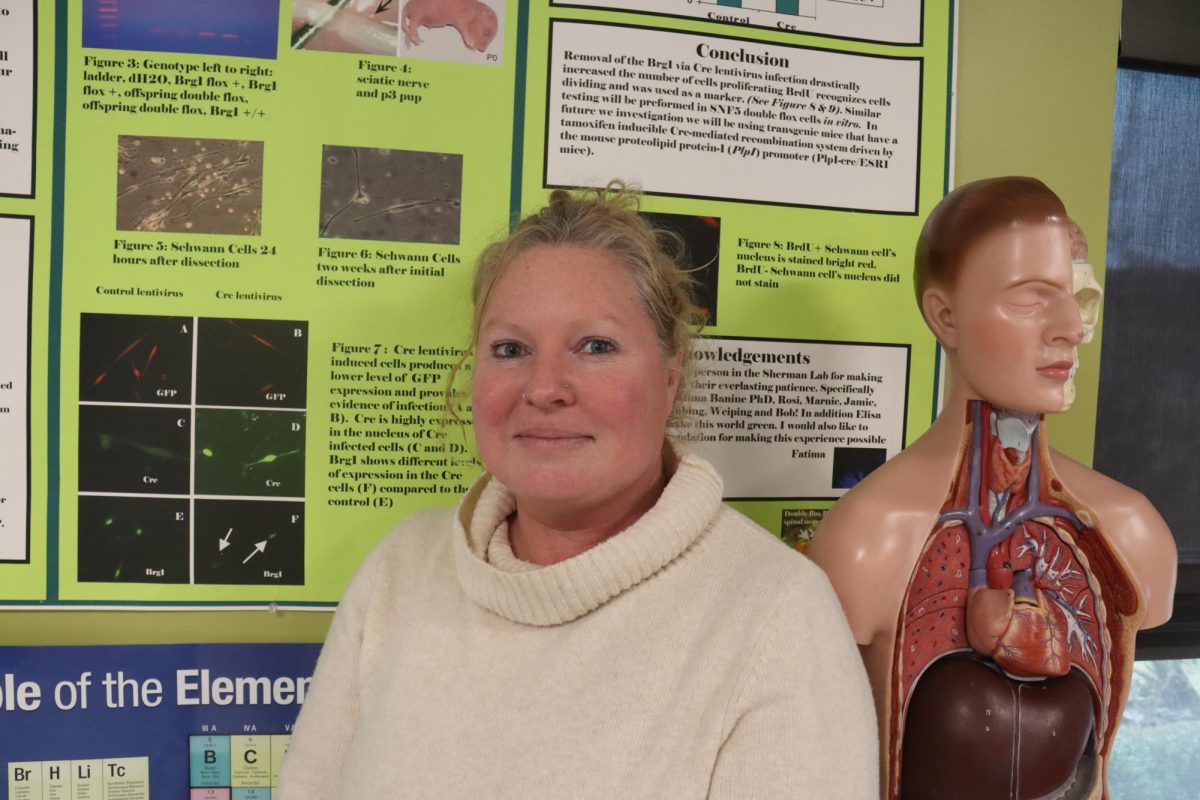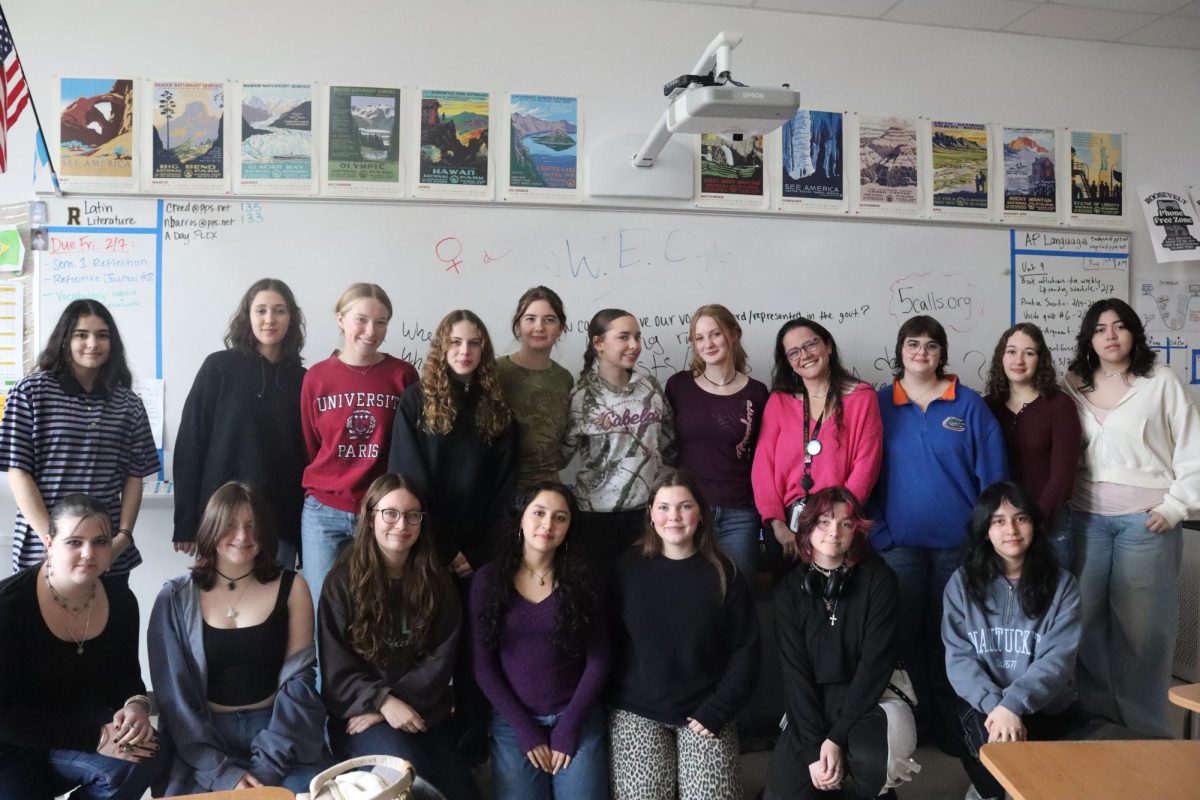As many RHS students may know, the SAT was a little different this year. When juniors took the SAT instead of the typical paper booklets and number two pencils, the testing rooms were full of chromebooks. This school year was the first year RHS students took the new digital SAT, which has experienced a myriad of changes from the original testing format that has been used for years and years. But what exactly is different? What does this mean for the students taking the newly revamped test?
The new digital SAT was first instituted outside of the US in 2023, but for American students spring of 2024 was the first time they experienced the online test. The most significant change to the test is that it is shorter, now two hours instead of three. The passages in the reading/writing sections now contain smaller articles and essays, usually 1-2 paragraphs, instead of longer literary pieces. Both math sections now allow students to use a built in desmos graphing calculator. One of the most interesting changes is that the SAT, a worldwide standardized test, is now adaptive.
When I first heard about this change I was confused. How can a standardized test be adaptive? College board explains the new format as “The SAT and PSAT-related assessments use a multistage adaptive design. Each test section (Reading and Writing, and Math) is divided into two equal-length, separately timed parts called modules. You’ll answer a set of questions in the first module before moving on to the next. The questions you’re given in the second module depend on how you performed on the first module.” The multistage adaptive test format is similar to a lot of tests students have to take in school like MAPS testing. So while it is technically a standardized test, these changes have completely thrown away much of the general public’s understanding of the SAT, and in many ways it’s a completely new test.
Some may feel like the changes to the SAT are no longer a big deal, as in the midst of the global pandemic many colleges and universities came out with statements on new policies surrounding testing. By 2021 basically all colleges became test optional, with most claiming to keep these policies till at least 2026. Many of the test optional or test blind (refuse to consider test scores) schools claimed that the SAT and ACT measured wealth and class more than academic knowledge, on top of no longer being accessible due to quarantine.
A few months ago many colleges and universities came out with statements explaining how they are requiring the class of 2025 students to submit standardized test scores in their college applications. Schools that changed their policies include: Brown, Dartmouth, Duke, Purdue, Yale, and University of Texas Austin among many others. This has shifted the entire expectation and understanding of the college admissions and application process for many rising seniors across America. A new SAT is now coupled with many colleges unexpectedly changing their testing policies, giving students little to no time to prepare and having to submit their test scores.
On top of all of these changes, many Roosevelt seniors may have experienced the now frustrating and slow process of the new FAFSA system, which due to glitches and system errors is making it so many students still don’t know how much college is going to cost. This has caused many universities and colleges to push back their college decision day, which was originally May first. Nevertheless, the new FAFSA system has led to extra added stress on all who are planning to attend college next year.
This college admission cycle has been full of many changes, affecting current seniors, and seniors of the future. With the uncertainty and confusion about the next few years of college admissions, it is important for students to stay up to date on all aspects of the admissions and application process. College and University applications and admissions are very stressful, all students should also keep in mind that their mental and physical well-being matters most, and even with all of the drastic changes, things will work out.






















